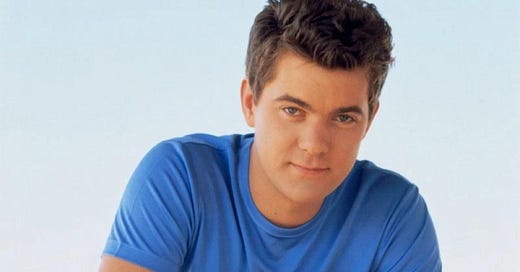Before we start— my memoir class with Not Sorry is starting this Sunday, and you can still sign up! More info at the end of this post. Have a great time and write your story. Find out more here.
Hi! This is part one of a two-part series.
PART 1. This week, we’re diagnosing the dreaded Bragging Story: what it is and why it can really trip you up when you want to engage your listeners/readers.
PART 2. In part 2, we talk about what to DO about it. In a world where we often need to tell a story that communicates how great we are— job interviews! pitch meetings! first dates!— how do we keep from bragging? Or maybe... how do we brag better?
When I was in my twenties, I took this women's empowerment course. One of the practices in the course that we did a ton was bragging. We did it all the time. In class, in our journals, at lunch with each other.
“I brag that I asked for my raise and got it.” *
“I brag that I stopped reading Ulysses 30 pages in and I didn’t even feel guilty about it.”
“I brag that I flirted with Joshua Jackson** in line at the smoothie place. There was definitely eye contact.” ***
*These are all real brags I wrote in my journal at various points.
** ed. note: Joshua Jackson played Pacey Witter on the TV show Dawson’s Creek.
*** in retrospect, I now understand: he was not flirting. I was in front of the straws.
The joys of bragging
We were doing this bragging to counteract the more common occurrence in people raised as women, of minimizing our own accomplishments. Calling it “bragging” was just a way to remind us: we’re pretty great, and we’re allowed to say so.
So I have done some bragging in my life. But it was very wholesome. We cheered for each other a lot.
And 15 years later I still maintain that we should absolutely own our accomplishments and be proud of what we do well. The question is how.
The dangers of bragging
The thing is, if you’re not in a room specifically full of cheering women as you “brag,” telling a story that reads as bragging can actually disconnect you from your listener.
You’re not surprised to hear me say this, are you? We know this instinctively. We feel it when we meet someone new at a party and they monologue about their five bedroom house, their six figure job, their enlightened/supportive/hot fiancee. We nod and say blandly, “Good for you,” and excuse ourselves to the bathroom.
But why? What makes something feel like bragging and not just sharing good news? Why could I hear my classmates “brag” and it was joyful, but I can hear someone going on about a book deal and roll my eyes?
Towards a Theory of Bragging
I’ve been thinking about this all week. At first, bragging seems subjective. Maybe when your best friend tells you good news, you love it, but when a stranger tells you the same thing, you’re less invested?
But no. I’ve heard stories with happy endings from perfect strangers, and I was on their side the whole time. So it’s not about how you feel about the person.
Here’s what I’m trying out in my Working Theory of Bragging.
I propose that any story risks sounding like bragging when it’s about the teller’s good fortune or success, and it’s MISSING any combination of these things:
Honesty.
Vulnerability or obstacles.
An acknowledgment of luck, support or privilege.
Here’s what I mean.
First, when someone tells us about their accomplishments, but they’re clearly leaving out some important pieces, exaggerating others, pretending to humility or obstacles, or otherwise giving us a skewed account? Could feel like bragging.
Or, related, maybe they’re not being vulnerable with us. Are they pretending they didn’t have any obstacles, challenges or doubts? Could feel like bragging.
Finally, when they try to make it seem like the good result of their story was solely a result of their own innate intelligence/negotiating ability/courage? You’ve probably got a bragging story.
The result of all of these: a chasm between us (listeners) and them (bragger).
This kind of storyteller is not trying to relate to us. They’re trying to make us admire them. So instead of standing next to them, cozy and intimate, we’re at the bottom of the mountain, squinting at them way up there at the summit. We feel separate from them, not happy for them.
To me, this is why I want to avoid a story like that: my goal is to connect to my listeners, not alienate them.
So how to avoid the bragging trap?
The question is: if I do want to tell a story about doing something well, how can I avoid the bragging trap? How do I keep my listener with me?
Tune in next week: we’ll talk about how to keep a story in the “triumphant but relatable” zone, instead of:
“Did I ever tell you about the time I won $400 off Tony Hawk, who loves me by the way, in a skating competition for charity (it was for charity because I am very empathetic) and it was SO EASY?”
Ok, how about you? Did I miss anything in my diagnosis? Do you struggle with this in your own work, do you know someone who brags, do you wish you could brag better?
Talk to you next week!
Respectfully and enthusiastically yours,
Micaela
P.S. Find part two of this post here:





